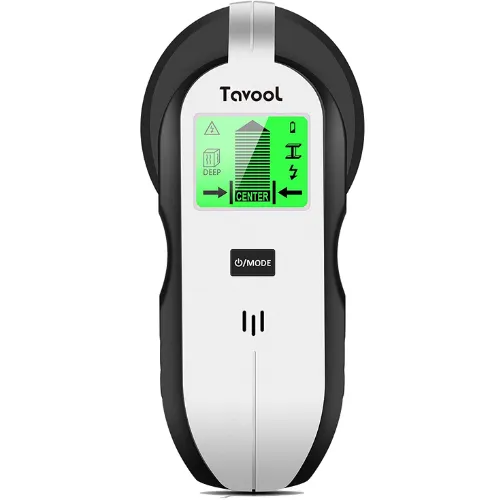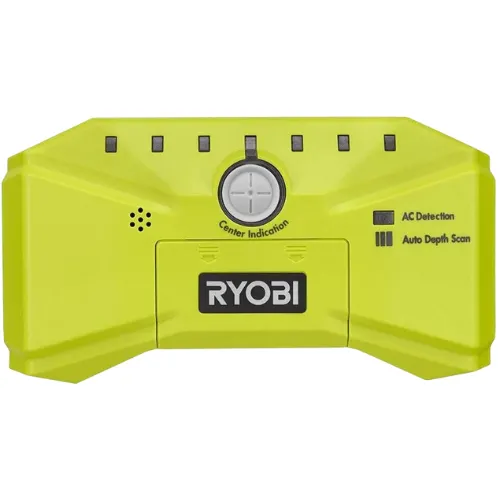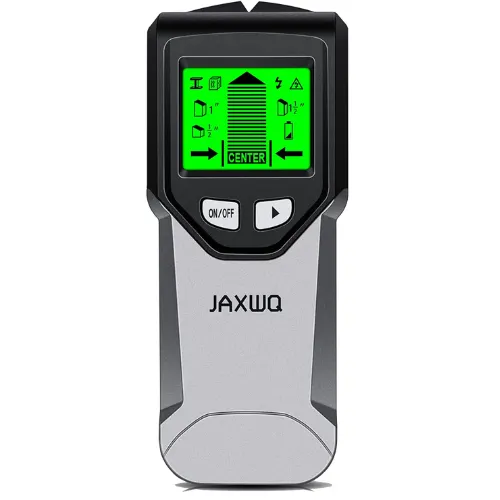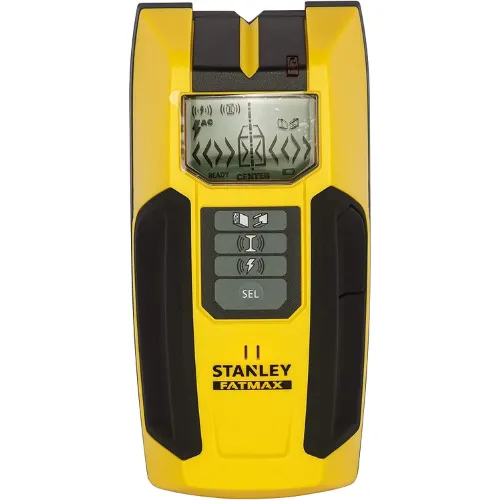Why Is The Tavool Stud Finder So Popular That It Is Ranked In The Top 5 On Their Category In Amazon?
You are renovating or wanting to drill into a wall & are worried whether if there are AC wires on that spot?
A Stud Finder Wall Scanner tool can detect AC cables and power lines behind walls and identify the location of any existing wall studs to provide you with an accurate picture of what’s behind your wall.
Your walls are full of electrical outlets and pipes. It would be nice to know where they all are. That way you can safely drill into the wall without fear of electrocution.
Check out this handy gadget!
How To Choose Which Model Is Best For You
Match the features, capabilities to your budget. Once you have narrowed down, click on the "Check Price On Amazon" button to get further confidence you have made the right choice by reading some past customers reviews.
How We Choose The Best For You
Can a stud finder wall scanner really find AC wires & studs behind walls? Yes, it can. I've used mine a few times and it works well.
I'm sure you've heard that there are many ways to find AC wiring, but none of them work the way you'd expect. I don't know about you, but it's frustrating when I use one method and it doesn't work.
This stud finder for plaster walls tool will let you know if you have AC wires and studs inside your walls and it will scan for them as well. You don’t have to take any chances on accidentally drilling into AC wires or getting electrocuted.
How To Choose Which Model Is Best For You
Match the features, capabilities to your budget. Once you have narrowed down, click on the "Check Price On Amazon" button to get further confidence you have made the right choice by reading some past customers reviews.
Tavool Stud Finder Sensor Wall Scanner - 4 in 1 Electronic Stud Sensor Beam
Amazon #4 in Stud Finders & Scanners
Why We Think This Is The Best
Tavool is the best stud finder for AC wires and wood/metal studs. This wall scanner can detect all live electrical wires. It never misses any, and you can be sure it always detects live wires.
If you are a professional, home owner or DIY handyman, this electronic stud scanner will come in handy.
The Tavool Stud Finder digital wall scanner features 4 different scanning modes for wood, beam, joist, metals, AC wires that are deeply embedded in the walls.
Stud mode is a stud finder that will detect wooden beams and joists in drywall. Up to 1.2 inches.
Metal mode is designed to detect pipes, rebar, aluminum, and copper up to 1.57 inches.
Deep mode will detect metal and wood in the wall up to 1.77 inches while 85~240 volt AC current for voltage and live electrical lines up to 2.36 inches.
The large LCD screen with sound and fast auto-detecting allows you to locate the exact spot of the stud metal AC wire accurately as the sound intensifies when getting close to the object.
The tool will be automatically calibrated once it is turned on.
Things To Know About This Model
- Weight : 5.4 oz
- Battery : 1 9V not included
- Size : 6.49 x 2.75 x 1.1 inches
Ryobi Stud Finder with LED Indicator ESF5001
Amazon #110 in Stud Finders & Scanners
Why We Think This Is Among The Best
It's easy to use this handy detector, which will help you find studs in your wallboard.
The Multi LED allows you to see the entire stud, not just an edge or center.
This handheld tool uses depth sensing technology that makes it easy to measure the thickness of your drywall.
With its material detection capabilities, this 1-hand held device helps you determine whether you are over non-ferrous metals (such as copper and aluminum), wood, and/or AC cables.
Things To Know About This Model
- Weight : 8.7 oz
- Battery : 1 AA included
- Package size : 8.39 x 6.69 x 2.17 inches
CRAFTSMAN Stud Finder, 3/4-Inch Depth CMHT77633
Amazon #1 in Stud Finders & Scanners
Why We Think This Is Among The Best
The stud finder works on drywall, fabric and wallpaper with a depth range of 3/4 inch.
Edge detection ability to locate stud edges of wood and metal studs.
Shock-Resistant & Water-Resistant body for durability and extended service life.
Things To Know About This Model
- Weight : 3.2 oz
- Battery : 1 9V not included
- Package size : 7.32 x 3.5 x 1.26 inches
JAXWQ Stud Finder Wall Scanner - 5 in 1 Stud Detector
Amazon #2 in Stud Finders & Scanners
Why We Think This Is Among The Best
Intelligent micro-sensor chip with very high sensitivity, which can accurately and quickly find the edges and center of metal, studs, joists, pipes, live AC wires behind anything.
5 in 1 Multi-function Detection : 1/2 inch scan mode locates the center and edges of wood and metal studs up to 1/2 inch deep, Medium scan locates the center and edges of wood and metal studs up to 1 inch deep, Deep scan locates the center and edges of wood and metal studs up to 1.5inch deep, Metal scan detects metal (Ferrous and Non-Ferrous Metal) up to 2.36 inch deep, and AC scan detects live unshielded AC wires up to 2 inches deep.
The stud finder includes a large LCD display and an alarm that can locate object. It measures the distance between the device and the nearest object and the alarm will give the direction & an indication of how close you are to it.
The LCD screen is clear even in low light conditions to indicate detection mode, centering & battery condition.
Things To Know About This Model
- Weight : 8.1 oz
- Battery : 1 9V not included
- Package size : 7.76 x 3.27 x 1.65 inches
Stanley Stud Finder FMHT77407 FatMax 300
Amazon #2 in Stud Finders & Scanners
Why We Think This Is Among The Best
Sequential LEDs and beeping indicate the scanning progress.
LED marking channel identifies target making marking surfaces easy and accurate.
Backlit LCD screen even in low light conditions.
AC detection to 2 inch deep, wood and metal detection to 1 1/2 inch deep.
Deep metal scans up to 3 inch.
One Pass to locate stud centers.
Auto-calibrates.
Things To Know About This Model
- Weight : 8.1 oz
- Battery : 1 9V not included
- Package size : 7.76 x 3.27 x 1.65 inches
Stud Finder FAQs
People are always asking us questions about the stud finder, and there are many of them.
It can be hard to find good information about getting the right tools, especially if you had not used them before or not sure where to look. Or worse, you might end up with bad information that should have been to make your home projects much easier.
We know you are a seasoned handyperson or a trade professional looking for a replacement but for the benefit of new users, a stud finder can make your work projects a whole lot safer & easier.
Here are the most frequently asked questions about stud finders and our top answers:
Are stud detectors accurate?
Yes, they are very accurate in locating the screws or nails that hold the drywall to the stud.
What does a stud finder actually detect?
Stud finders are tools that use magnets or electricity to detect metal.
This magnetic detector detects the fasteners in the drywall and alerts the user when the magnet is attracted to the metal fastener.
Electric stud finders are good for detecting changes in the dielectric constant of the walls.
How far apart are studs in a wall?
Studs are usually spaced every 16 inches from center to center but some spaced them at 24 inches.
How can you tell where wood is in the wall?
Almost certainly there's a stud every 16 inches starting from a corner where the drywall is.
There may be some overlap where the drywall meets, but it’s safe to assume that if you measure 16 inches in either direction from the corner, there are studs.
Should you drill into studs?
If you need to hang shelves or mount something securely to the wall you’ll need to install it directly to the wall studs.
However, you should drill pilot holes before driving in any screws to determine there are actually studs.
Do stud finders work on plaster walls?
Because conventional stud finders detect a change in the density of material within the wall, they can’t work on lath and plaster - the density inside these walls is not consistent.
If you're not getting any results in an older house, then consider using a metal scanner.
Do stud finders work through wood?
Stud finders can detect screws or nail heads that are in the studs so it should be able to detect the studs through wood paneling.
Are outlets always on studs?
One of the best ways to find studs is to locate your electrical outlets and light switches and see where they are attached. Standard outlets and light switches are fastened to studs.
Turn off the circuit breaker, and then take the cover off the outlet or switch. Look inside the electric fixture.
How deep is a stud behind drywall?
Studs are vertical 2 by 4’s thick and sturdy wood that help support the frame of your home. In some cases, metal studs are used like in partitioning new additional rooms. Wood or metal, they an hold screws more securely than drywalls.
Drywall screws are fastened to the studs, which are spaced 16 to 24 inches apart.
Can a wall have no studs?
A wall needs to have studs to be strong and stable.
There are some variations in how a wall can be framed and where you will locate studs.
In other instances, brick walls need not have studs but it will rebar concrete pillars.
While you are trying to detect where studs are located, you may also be interested in a Dewalt line laser to accurately find the vertical & horizontal lines.
We hope this article has helped make your decision easier and that you enjoy using your purchase!







